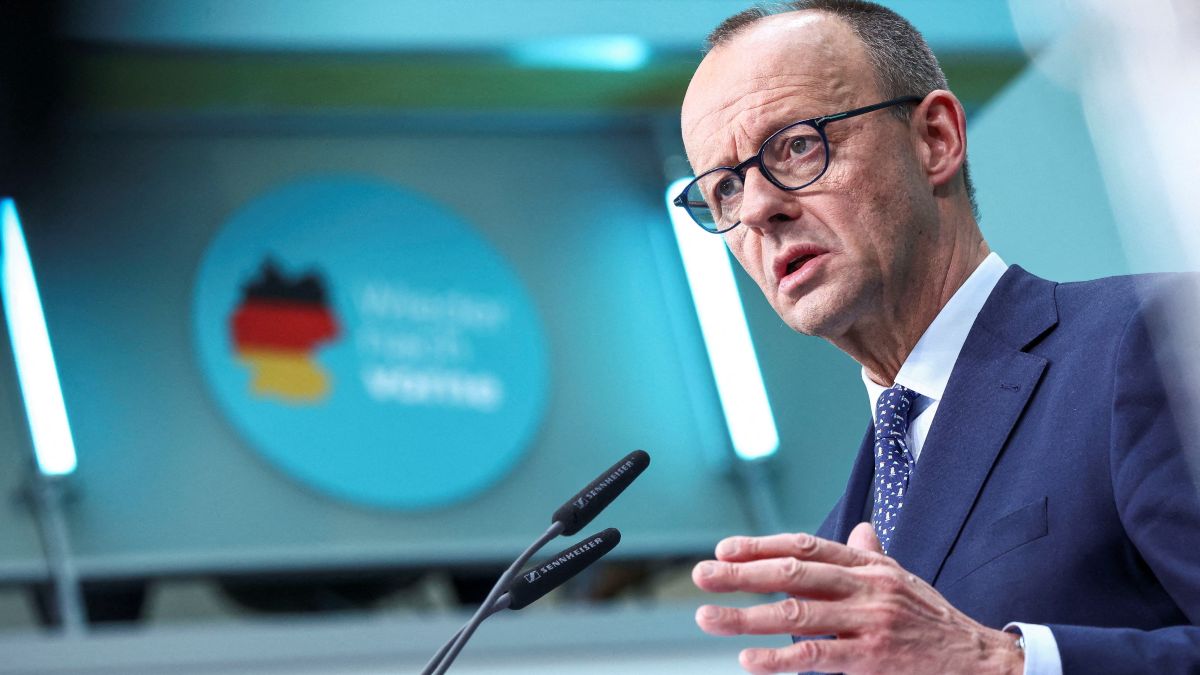Germany is on the cusp of forming a new government after months of political deadlock. This expected breakthrough has not from domestic consensus, though.
Geopolitical and economic pressure, in the form of mounting threats from both Washington and Moscow, forced the country’s rival parties into action.
Unveiling a coalition agreement on Wednesday (April 9), Christian Democratic Union (CDU) leader Friedrich Merz appeared alongside his partners from the Social Democrats (SPD) and the Bavarian CSU, declaring that the talks had taken place amid “growing global political tensions”. He cited “unpalatable threats” to Germany’s security and prosperity, pointing to Russian aggression and the economic turmoil caused by the United States, Financial Times reported.
The new coalition could install Merz as chancellor as early as May, ending a long period of caretaker government and providing Europe’s largest economy with a functioning executive at a time of acute global instability.
Tariffs hasten political unity
While Merz had pledged to form a government within two months, events beyond Germany’s borders accelerated the timeline. Trump’s move to impose a 20 per cent tariff on European goods— suspended for 90 days, but still looming— threatened to tip the country’s sluggish economy into recession. The uncertainty was enough to prompt compromise between the CDU and SPD, two parties with often opposing views on taxation, welfare, and industrial policy.
The agreement comes against the backdrop of three years of economic stagnation. Analysts warn that the new tariffs, even if delayed, could wipe out the benefits of Merz’s planned €1tn fiscal stimulus programme for defence and infrastructure.
Meanwhile, the far-right Alternative for Germany (AfD) is capitalising on voter dissatisfaction. After coming second in February’s elections, it this week overtook the CDU in a national survey for the first time, heightening the urgency for the formation of a stable centrist government.
Mixed reviews for a compromised programme
The 146-page coalition agreement sets out the broad direction of government policy, including measures to slash corporate tax by five points from 2028— a CDU priority— and raise the minimum wage to €15 per hour, fulfilling an SPD campaign promise. It also dismantles welfare benefits introduced by the previous SPD-led coalition. However, Merz failed to push through income tax cuts.
Critics were quick to note the lack of deep structural reforms. “The plan promises more subsidies but identifies only modest savings,” said Holger Schmieding, chief economist at Berenberg, adding that the programme “falls short of the ‘grand compromise’ between centre right and centre left which Germany needs to return to vigorous growth for good”.
Impact Shorts
More ShortsStill, the coalition’s long-term impact could be meaningful. Schmieding said the measures would likely increase the country’s real GDP growth potential— currently at just 0.4 per cent— though probably not to the extent originally hoped.
Merz, for his part, promised further reforms, including a plan to reduce the size of the federal government by 2 per cent annually. He emphasised this would be done “in a socially acceptable, sensible, and measured way”, adding, in a pointed remark, “We’re not hiring Elon Musk here,” referring to the US entrepreneur’s role in cutting government staffing within the Trump administration.
The SPD secured seven of 15 cabinet positions— a strong outcome for a party that won just 16 per cent of the vote, its worst result since 1987. Key posts include the finance and defence ministries. Ministerial appointments will be announced following a vote by SPD members to approve the deal in the coming weeks.
)